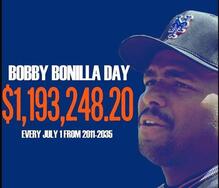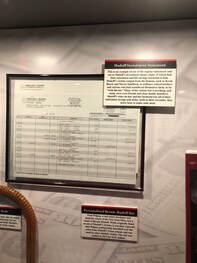|
The hardest work for history is how to sift through and handle people who leave behind a complicated legacy.
1 Comment
 Yep. You read that title right. I want to make the argument that pastors should not read theology books. In fact, all of us in ministry would do well to put them down. I guess now that I've got your attention, I should clarify that I mean we shouldn't read theology works exclusively. I believe pastors should read broadly, and that includes reading things that aren't published by Crossway or B&H. We need to pick up fiction, biography, current events, culture, literature, and novels. Our default is to read theology. I get that, totally. Many of us in ministry spent years getting degrees in theology or theological fields, we love the richness that comes from their pages, and we spent a lot of money on them! But we can't just read theology if we're going to be well rounded readers and leaders. We need to broaden what we're reading. Dare I say, our ability to pastor well depends on a broad reading. 1. Reading broadly expands our imagination - I'm not using imagination like Mr. Rogers' neighborhood of make believe. I'm using imagination in the sense of our mental constructs. Our imagination is the categories we think in. And when we read broadly, we are able to think across multiple categories and fields. We can think about how God has wired us to appreciate the beauty of story, the movement of history, the fascination with biography, and the lasting impact great books and literature have. 2. Reading broadly helps us be cultural exegetes - This isn't new. Spurgeon said that every day a pastor should read his Bible and newspaper. When we read broadly, especially current events or cultural issues, we're able to understand more where people are coming from, especially those outside our bubble. Guess what pastor, that means you'll have to read things you don't agree with. And you don't read them to rip apart the stuff you don't like. You read to understand, so that you can make an informed and biblical perspective. I've got two on deck that have been popular and controversial. Will I agree with it all? Of course not. 3. Reading broadly is exciting - I'm in the middle of a book about a KGB agent who secretly worked for MI6 during the Cold War. It is riveting. I'll probably finish it this afternoon. Before that I read the autobiography of a black cop who was a card-carrying KKK member, and another about life in Appalachia and how generational dysfunction has shaped an entire region. Going through the bestseller list or book recommendations online is a great way to find new things to read, or dusting off that library card once local restrictions are lifted. 4. Reading broadly keeps us out of our echo chamber - It's really easy to surround ourselves with people who agree with us, think like us, behave like us, and reaffirm us. That's what Twitter is. It's an echo chamber. And I think what many pastors do is unintentionally build themselves into a reading echo chamber where they only read that which is safe, clean, has passed a rigorous doctrinal test, and wouldn't dare ruffle us. That's unhealthy. We need to read things we disagree with, not so we can nitpick and find faults, but so we can be sharpened and prodded. A lot of this is built off #2, where we have to move out of our friendly confines. It doesn't mean we buy into everything we read, but we at the least can have an informed response. 5. Reading broadly sparks illustrations - When you're reading from a variety of books, you're basically diving into Scrooge McDuck's money vault of illustrations. They're everywhere. That's the beauty of words. Words convey images (that's why the book > movie) which allow us to make connections. Some people can retain huge chunks of what they've read and catalog it for later, but for those who can't, just write down things that spark from what you're reading. You never know when it might come in handy during a teaching/preaching moment. 6. Reading broadly forms an orbit - Think about our solar system. What's at the center? The sun. For pastors, the center of our reading solar system is always Scripture. That should be what grounds, informs, shapes, and forms our reality. We should read good books, but always come back full circle to the Bible. It's the greatest book. And just like the gravity from the sun keeps the planets in orbit and in their place, so does the Bible keep what we read in its place and in proper alignment. What are you reading now that isn't theology, and how has it shaped and helped you as a pastor?  Since 2011, MLB fans have had a reason to celebrate on July 1. For those of you familiar with today's festivities, happy Bobby Bonilla Day! In the long history of terrible pro sports contracts, this one has to stand above the fray. Not just for its awful financial conditions, but that it is often attached to the Bernie Madoff scandal and the Mets' ownership being embroiled in a Ponzi scheme. If you're not familiar, Bobby Bonilla was a baseball All-Star in the 90s, winning a ring with the Marlins in 1997 (yes, the Marlins have as many World Series championships as the Indians, Royals, Mets, Twins, Phillies, and Blue Jays). In 1999, following a disastrous season that ended with Bonilla playing cards during the NLCS, he was released. Because baseball contracts are fully guaranteed, the Mets were on the hook for the last year of his salary ($5.9 million). Instead of a one-time payment, Bonilla's salary was deferred until 2011 with 25 annual payments of $1.19 million every July 1 until 2035, a total of $29.8 million for a $5.9 million season where he never played a game for the Mets. Seriously, his agent deserves a medal. This is unreal.  At the time though, the Mets thought this was a great deal. The ownership had discovered the goose that laid golden eggs in the financial management and investments of Bernie Madoff. The returns from their (major) investments with Madoff were, in their opinion, more than enough to cover the Bonilla agreement. For the Mets, they were going to get so rich off their secret weapon that they couldn't imagine being the laughing stock of MLB and a cautionary tale of making stupid financial decisions. Needless to say, we all know what ended up happening with Madoff. There are so many lessons to take from this saga. It's a textbook of the consequences of poor decision making, a case study of the impact of fraud, and a "can you imagine if this happened with Twitter today?"
For ministry leaders, we can learn four lessons on the 10th annual Bobby Bonilla Day: 1) Good and Wise Stewardship is a non-negotiable: Jesus addressed the importance of wisdom and stewardship in Luke 14 with the parable of building a tower. His admonition to "count the cost" can be applied to any number of things we deal with in ministry. A building project completely financed can cripple a church's ability to do ministry for a decade. Launching initiatives and starting new ministries without asking hard questions jumbles and crowds out priority. In leadership, we have been entrusted with resources not our own that we will be held to account. We cannot be stupid with God's resources: God's money, God's people, God's time, God's buildings, God's work. 2) Don't Sacrifice Long Gains for Short Wins: The Bonilla deal sounded great in the same way that credit cards do, buy now pay later. Except it always costs more in the long run than it could have in the short term. The Mets will, by 2035, find themselves paying $24 million more than they should have for a player they didn't want. Pastors sacrifice long gains for short wins when we try to be people pleasers, we fail to audit ministries for effectiveness, or when we patch over major issues with band aids. 3) Moving Too Slowly Costs More than Moving Too Quickly: A lot of times we move too slowly in the church because we're afraid of ruffling feathers or causing too much stir or that it's going to hurt to make a decision that isn't going to be popular. I don't believe these are, most of the time, motivated by fear. I believe we genuinely want to do the right thing, and want to err on the side of grace, and want to be better than what we think someone "deserves." But every time we kick the can, the accrued costs add up. The puppet ministry that does nothing? Every time you delay in moving on, it's going to be worse when you do it. The incompetent staff member you make excuses for? Eventually it's going to be a bigger headache than you could imagine. The rotting trailer or church van that you keep thinking you'll use, it's going to one day cost more to fix than it could ever be worth when your insurance company gets a call. Make the hard call. Pull the band aid. 4) Don't Hide From Your Mistakes: To the Mets' credit, they've honored the terms of the deal and have faithfully sent the check every year. They've not tried to get out of it. They've got the same ownership group and they've not hidden from their mistake. Sometimes guys, we're going to do make the wrong decision. Nowhere in Scripture are we promised to be free from mistakes. We're going to make them. But we can't hide from them. Own up to them. Take the lumps. I'm sure Fred Wilpon every June 30th goes to bed getting himself ready for the jokes the next morning. But that's the price of leadership. So Happy Bobby Bonilla Day everyone! |
Scott M. DouglasA blog about leadership and the lasting legacy of family ministry. Archives
August 2023
Categories
All
|
 RSS Feed
RSS Feed



